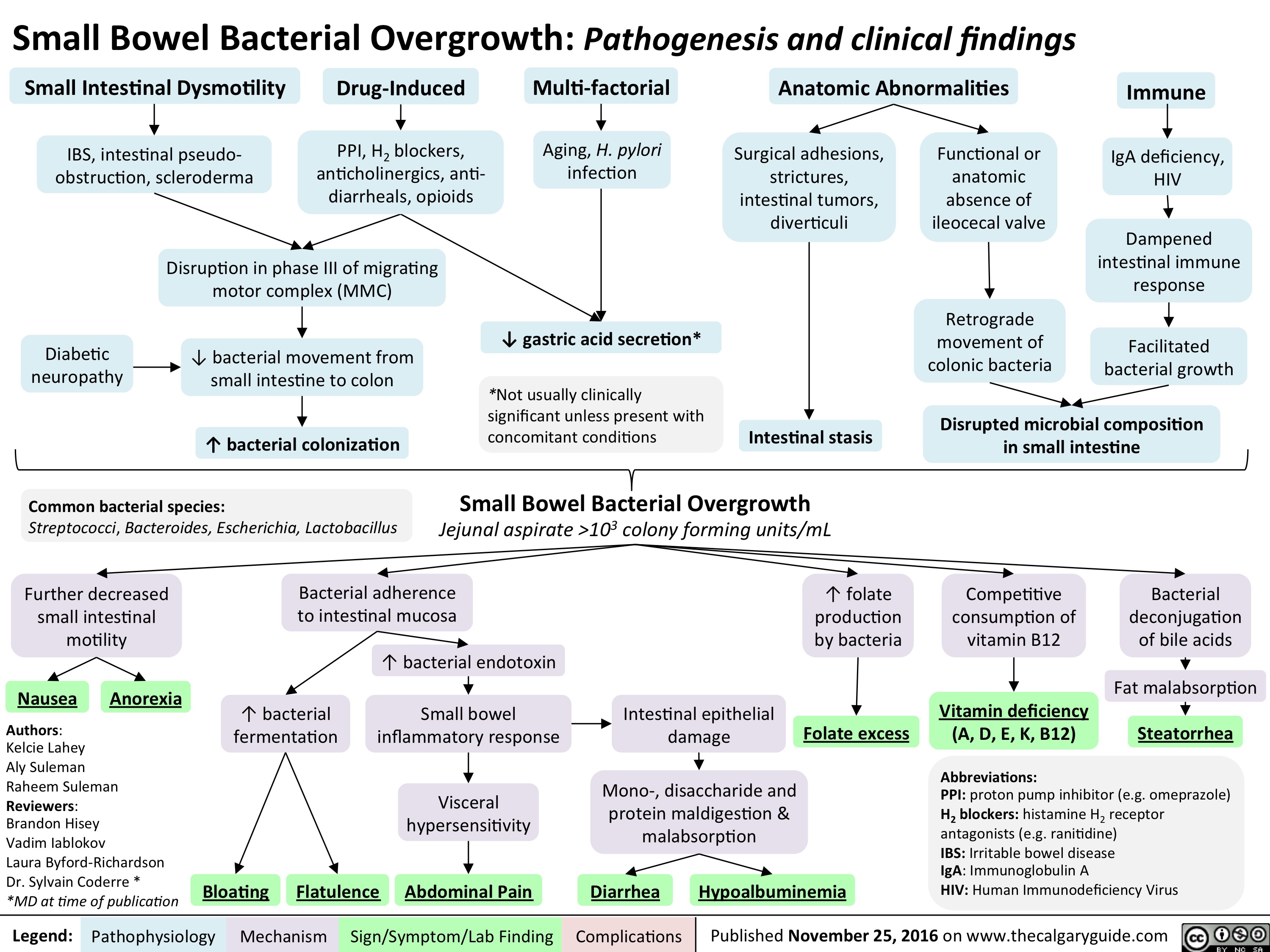

Small intestinal bacterial overgrowth (SIBO) Diagnosis & Treatment - ().Over view of Small intestinal bacterial overgrowth (SIBO) - ().FODMAP Diet: What You Need to Know - ().Diet for Those With Small Bowel Bacterial Overgrowt - (h).What is small bowel bacterial overgrowth? - ().About Small Intestine Bacterial Overgrowth - ().A short course of oral probiotic supplements in the form of capsules, liquids, or powders is recommended for most SIBO patients to heal the intestines. In addition, they help repair the gut and support the intestine in the management of bacterial overgrowth syndrome. Probiotics help the human body fight against harmful bacteria and maintain a healthy balance of the gut microbial community. In addition, some people might need intramuscular injections of vitamin B-12. Oral supplements of vitamin A, C, D, E, some B-vitamins, and supplements for calcium and iron are advised in general. People who experience malnourishment due to SIBO are recommended to use vitamin and mineral supplements by nutritionists. These include the usage of supplements and probiotics. The severe complications of SIBO, including malnutrition and weight loss, can be corrected by proper nutritional support. Some healthcare practitioners also recommend the usage of drugs that increase the intestinal motility of the intestines. The specific type of antibiotic is chosen based on the patient's medical history and administered for a short period. Some of the antibiotics used to treat SIBO are, Let us see the two common ways to treat SIBOĪntibiotics are considered a powerful way to treat bacterial overgrowth syndrome. The treatment for SIBO focuses on reducing the overgrowth of bacteria and increasing intestinal mobility. As the method is invasive, it is less commonly used. The intestinal fluid is aspirated using an endoscopy procedure, and the sample is used to grow and test the bacteria under laboratory conditions. This is the direct microbiological analysis of SIBO. An increase in the amount of these gases is indicative of bacterial overgrowth in the small intestine. Therefore, a breath test measures the amount of these gases in the air we exhale after consuming a sugar solution (usually glucose or lactulose solutions). The bacteria crowded in the small intestine digest the sugars we consume and release hydrogen and methane as the end products. It is the most popular test to diagnose SIBO. After this, the following tests are performed based on the patient's medical history and health conditions. To diagnose SIBO, the doctor first performs a physical examination to evaluate the malabsorption and underlying abdominal issues.


How is Small Intestine Bacterial Overgrowth diagnosed? The poor absorption of vitamin D and calcium can cause bone diseases like osteoporosis (weak and brittle bones) and osteomalacia (soft bones).ĭue to the complications developed by SIBO, like diarrhea, some people might experience dehydration frequently.Īs SIBO disturbs the balance of the gut microbiome, it may induce a harmful immune response in the gut, causing mucosal inflammation in some people.


 0 kommentar(er)
0 kommentar(er)
